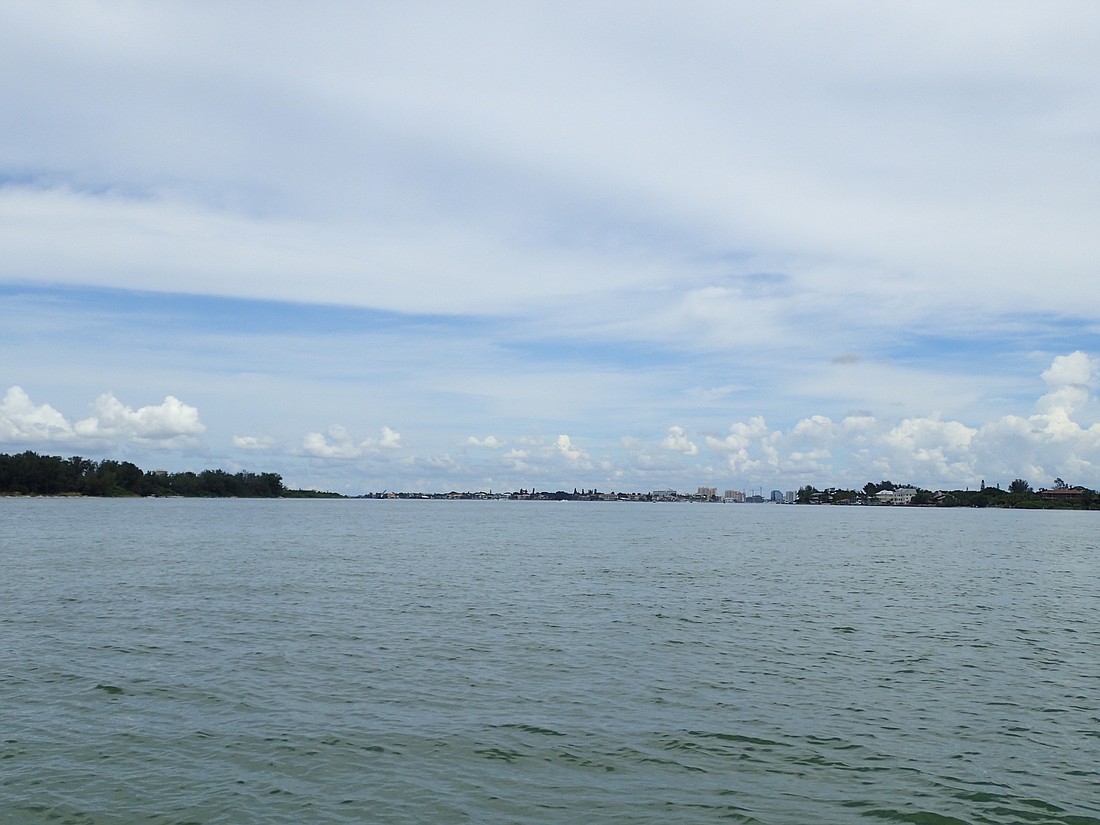- February 19, 2026
-
-
Loading

Loading

City engineer Alex DavisShaw doesn’t want to offer too much feedback on the third-party review of plans to dredge Big Pass because she doesn’t think it’s done yet.
“It’s really hard to speak to it until they finish it,” DavisShaw said. “I’m sort of surprised it went out with all these gaps in it, when they hadn’t really — as far as I can tell — done all they could to get that information.”
The review, commissioned by Sarasota County and released in late September, was still a draft. The county and engineering consulting firm Atkins, which conducted the review, have 17 days after the initial report to finalize their findings.
Still, that draft didn’t hesitate to criticize the U.S. Army Corps of Engineers’ plans to renourish a portion of the Lido Key shoreline with up to 1.3 million cubic yards of sand from Big Pass, which has never before been dredged. The project would be part of a proposed 50-year, long-term effort to maintain the Lido shoreline.
The Atkins review alleges that the Army Corps’ reports “lack the supporting documentation necessary to confidently accept the conclusions.” The Army Corps has assured concerned residents that the project wouldn’t adversely affect Siesta Key, a claim that’s been met with skepticism.
Vocal critics of the dredge, such as the advocacy group Save our Siesta Sand 2, seized on the report as confirmation of their fears. But DavisShaw said the city and Army Corps didn’t see anything in the report to give them pause as they proceed with efforts to get state approval for the project.
"There’s nothing that was written that causes them to second guess what they’ve done and think there’s an error in their protocol, their modeling." — Alex DavisShaw
The report cites multiple instances where Atkins believes the Army Corps’ claims lack evidence, or that different descriptions of the project conflict with one another, or that data used is outdated. DavisShaw declined to comment on specifics, but she indicated that Atkins had failed to procure material that could have answered some of those questions.
“There’s a lot of information that it appears wasn’t gathered,” DavisShaw said. “Talking with both my consultant and the Corps, there’s nothing that was written that causes them to second guess what they’ve done and think there’s an error in their protocol, their modeling.”
Other than confirming it had received the draft report, the Army Corps declined to comment on specifics.
“We are confident in our work and continue to move forward through the Florida Department of Environmental Protection permitting process,” Army Corps spokeswoman Erica Skolte wrote in an email.
If the finalized report includes information that causes the city and Corps to question the work it has done to date, DavisShaw said they’d work to address them.
The report acknowledges that Atkins hasn’t performed an “independent analysis of alternatives,” but that it believes parts of the project could begin as the long-term impacts are delayed for further study.
This is central to DavisShaw’s lack of concern about the findings in the draft report. She said the report doesn’t provide any evidence that the Army Corps’ plan is incorrect or problematic, only concerns that it could be.
“If I walked outside and I say, ‘I don’t see anything that makes it look like it’s going to rain today, but I just think that’s going to rain,’ I don’t know that that’s going to make you go back and get a raincoat,” DavisShaw said.
Here are some of the criticisms of the Army Corps’ plans to dredge Big Pass raised in the Atkins review of the project — and responses to those criticisms from city engineer Alex DavisShaw.
Review: “The (Army Corps’) reports lack the supporting documentation necessary to confidently accept the conclusions.”
Response: “There were a lot of areas where (Atkins) needed to do a little bit more due diligence. Until they’re done, I don’t want to judge.”
Review: “Studies have not been provided that present analysis of the long-term effects of the proposed activities.”
Response: “There’s not an assumption that what gets permitted here is going to be ongoing, and we’ll do the same thing over and over again — it’ll be an event with monitoring. When it’s time to go back and renourish Lido, we’ll look to see how things perform there.”
Review: “A request to the Corps for clarification and additional information have been made by the reviewer through the county, but as of this report not received.”
Response: “They never did ask for information from the Army Corps. ... The Corps doesn’t have any info on how they were formally requested.”